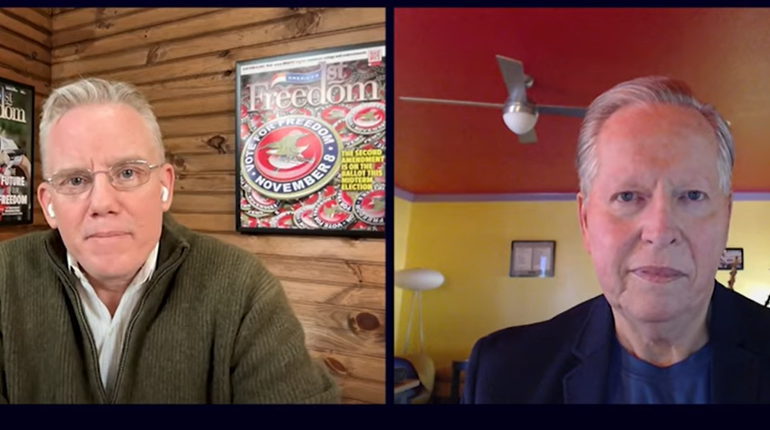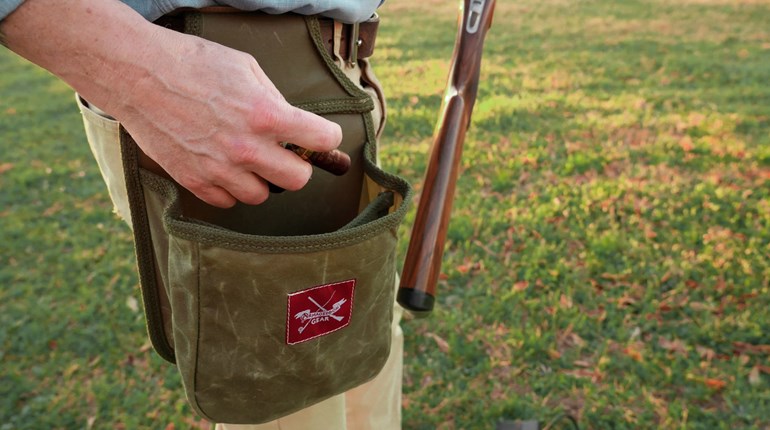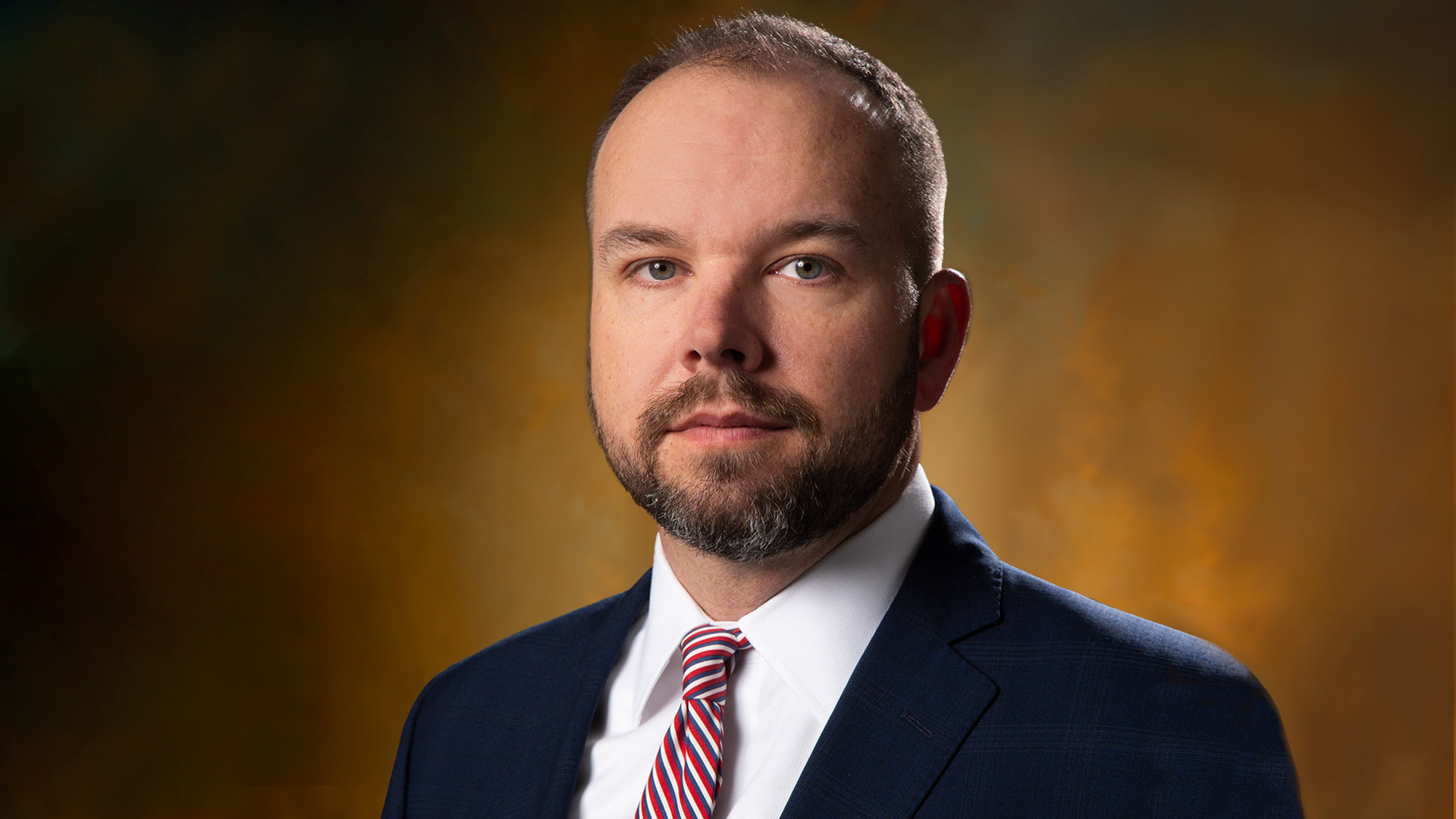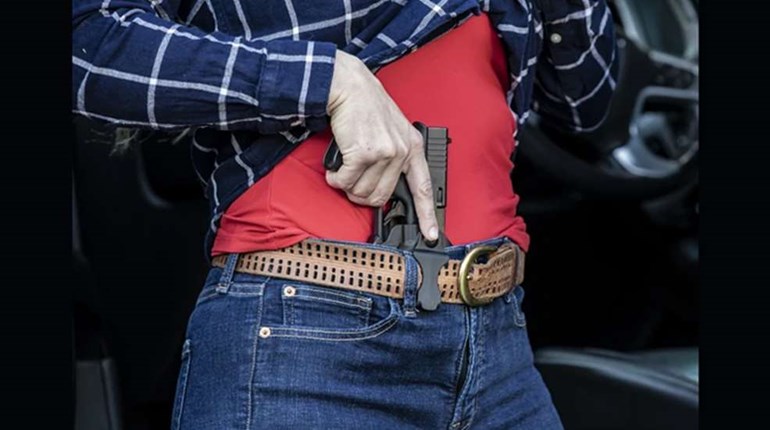
Originally appeared in America’s 1st Freedom magazine, January 2013.
On this cold, sunny day in November, I made my way to Trexler Middle School in Allentown, Pa., because a sixth-grade teacher asked me to come see how he uses hunting and firearms training to “save kids’ lives.”
How could I say no?Imagine Outward Bound, the Boy Scouts, Big Brothers and Sisters and school all combined, and you’ll start to understand how we use hunting, fishing and shooting as rewards to create upstanding young men and women in Camp Compass Academy.
I see what he’s up against when I turn off Route 22 into downtown Allentown, a city of 120,000 that’s an hour north of Philadelphia. There are teenagers hanging out on the streets at 2 p.m. There are a couple of those dark, sporty cars with the tinted windows and chrome hubs slowly circling city blocks. Near the school is a lot of rundown housing, as well as the usual trappings of American urbanization—McDonald’s, Dunkin Donuts and a gym. There’s graffiti on buildings and trash bins, too. I wonder if some are gang symbols as I’ve been told there are four active gangs in this middle school.
I pull into the school’s parking lot. Trexler Middle School is a typical one-story, red brick building. I graduated from a large New York suburban high school that had gang and drug problems, so this place is hardly a culture shock to me. There are much rougher places than this in many American cities; nevertheless, I wonder, “Can this really be the place where someone developed an innovative youth hunting and fishing program?”
At just after 2 p.m., John Annoni, the sixth-grade teacher who asked me to come, lets me in a back door. He shakes my hand and we step into a crowded middle school hallway. He’s smiling, talking to me and to the students. A sixth-grade boy knocks his fist into Annoni’s and says, “Thanks, teach.” Annoni pokes the sixth-grader’s bag and asks, “Are your books in there—homework, you know?”
“Yes, sir, I have ’em, Mr. Annoni,” says the student as his back straightens.
Annoni asks a group of girls if they’re coming to Camp Compass Academy after school. When they say “yes,” he wants to know if they’re walking in groups to be safe.
A student named Anthony comes up. He has the hood of his sweatshirt pulled up over his head and his right arm around his girlfriend. “Yo, Mr. Annoni,” he says. Then he reaches his hand out to me. “My name’s Anthony,” he says politely.
I shake his hand and introduce myself, and he walks off.
Annoni turns to me and says, “That just made my day. He shook your hand and looked you in the eye. That’s exactly the kind of thing I teach at Camp Compass Academy. That’s how a man acts.”
We step into his classroom. It’s empty. There is a stuffed mallard in the front of the classroom. In the back are a deer skin and other taxidermy he uses as props in teaching science.
Annoni says, “Imagine Outward Bound, the Boy Scouts, Big Brothers and Sisters and school all combined, and you’ll start to understand how we use hunting, fishing and shooting as rewards to create upstanding young men and women in Camp Compass Academy.”
We sit on top of sixth-graders’ half-sized desks and he gives me some context.
“This school used to be mostly white,” he continues. “Now, after decades of ‘white flight,’ it’s pretty diverse. So I bet you’re thinking, ‘Can this black guy really be helping kids by running a hunting and fishing nonprofit?’”
I smile and nod.
“A lot of students wonder at first, too,” he says. “New ones sometimes ask me, ‘What are you?’ I think they’re looking for a role model they can relate to by skin color, so I reply by asking them, ‘What do you think I am?’ After they guess, I tell them, ‘I’m half black and half white, but I look Spanish and I eat Chinese food.’ They laugh. I let them all know I’m just like them.”
No doubt about it, he’s a real straight shooter.Students keep approaching Annoni with warmth in their expressions. He knows all their names. He’s the teacher we all wish we had, but so few of us did.
He rolls on, “If someone told me I’d be doing what you’re about to see 20 years ago, I’d have said they were crazy. But the few chances I got to hunt as a kid helped me, so I figured it could help others, too. So 17 years ago I started down this path by just taking a few kids out. We now have 60 students enrolled. We have a waiting list of 300. I mentor 42 online, too. I just don’t have the resources to take more students right now. We’re a nonprofit. Every dime we raise helps these kids. But that’s all I’m going to tell you. It’ll be clearer if I show you.”
“Wait a second,” I say, “you’re running this program out of this school?”
He gets a big, infectious grin and tosses his head.
“Not anymore,” he says. “I started it here, but then the school officials called me in and told me if I’d make it a fishing-only program they’d back me. They just couldn’t let me do the hunting and shooting, they said. I couldn’t do that. I know what helped me as a kid and I’m not going to go halfway with these kids. So a friend found another place for Camp Compass Academy. It’s just 300 yards from here. Come on.”
We go back into the hall and then out front. Students keep approaching Annoni with warmth in their expressions. He knows all their names. He’s the teacher we all wish we had, but so few of us did. He knows a teacher doesn’t have to be a cold authoritarian, and he knows a teacher can’t be a softy, either. There’s a line to walk—a positive, role model kind of line—and he knows how to walk it with well-practiced ease.
We get in his car and take a turn around the neighborhood. There are a lot of kids on street corners. Most of the housing was probably in good shape back in the 1980s. After touring the neighborhood, we pull into the back of a store called Joe Mascari’s Carpets & Rugs. We park in an alley next to a small bus with the Camp Compass Academy logo on it.
“That’s our bus,” he says. “A student on work release just scrubbed graffiti off it for us. I use it to take kids hunting and fishing and to take them to outdoor shows and stuff.”
We walk in the back door, go past displays of tiles and rugs and enter a classroom with four long tables and lots of chairs. There’s a projection screen pulled down on the right, and two toy guns. Annoni picks one up. It looks like a Ruger 10/22 but has an orange cap on the end of the barrel showing it’s not real.
“This is a shooting simulator,” he says. “Everyone is going to get a chance to shoot ghosts today.”
Half the tables are already filled with students. They’re all dutifully working on a written assignment. They have on hunter orange Camp Compass Academy T-shirts. As more students arrive, they know just what to do: Get the assignment and go to work. Each must begin by picking up a wooden gunstock with a scope taped to it. They have to look out a window through the riflescope and read a quote taped to the bus. Today the quote reads, “It doesn’t matter how slow you go as long as you don’t stop. —Confucius.” They have to write down and memorize the quote.
I step into an adjacent room where Russ Reigel, a retired social studies teacher, is inputting students’ school grades into a computer. The students are required to share their report cards with the Camp Compass Academy staff. Reigel, Annoni and a few other volunteer teachers then look for weak areas in each student’s education. If students don’t get their grades up, they won’t get to go hunting or fishing, so most do.
Yes, students have to earn the opportunity to go hunting. Most students have to be in the program for two years before they can go on a hunt. In the meantime, they learn about firearm safety and the wildlife they’ll hunt. They also study the science behind hunting and try things like fly-tying, taxidermy and turkey calling.
Back in the main room the students are taking turns, two at a time, shooting ghosts on the screen as the rest of the students finish their written assignments. Annoni is roaming around making sure everyone is learning and having a good time, but mostly he stays at the front so he can make sure each student is handling the fake guns responsibly and that their shooting stances are correct.
I sit at a table with a few students and ask if any of them had ever hunted before they got into Camp Compass Academy. They all say they hadn’t even thought about hunting, but say they all now want to go.
Jay, a freshman in high school, says she had no idea what an elk or antelope was before getting into the program. She’s been involved since she was in sixth grade.“Now I know gun safety and how to shoot,” she says. “I have respect for wildlife because of hunting. Also, I’ve learned a lot about science. When I got my first deer, I couldn’t believe how much its parts really looked like the scientific drawings.”
“Now I know gun safety and how to shoot,” she says. “I have respect for wildlife because of hunting. Also, I’ve learned a lot about science. When I got my first deer, I couldn’t believe how much its parts really looked like the scientific drawings.”
“Did you eat your deer?” I ask.
“Yeah,” she says, “venison is tasty.”
Across from her is Anthony. He is in the eighth grade. He’s the one who shook my hand back in the school. He has taken deer and a bear.
When I ask if anyone at home hunts, they all say “no,” and Jay adds, “My mom is afraid of guns. At first she thought this was really weird, but now she thinks it’s cool.”
I stand up as Jay says to a few girls beside her that she wants to kill a bear and put the bear rug in her bedroom, but that she could never wear fur. One of the other girls thinks that’s a contradiction and begins to tease her about it. “How can you have a bear rug but be against wearing fur?” They’re all laughing and figuring that out.
A young man—a graduate—has come in and I want to talk to him. His name is Tracy. He’s 19 years old. He shakes my hand.
“I come here to get away from the streets, you know,” he says. “I like huntin’ because when you’re out there you’re safe. No one is giving you trouble or somethin’.”
Annoni steps over and puts his hand on Tracy’s shoulder. “You doin’ all right with that job?” he asks quietly.
“Yeah, good for now,” says Tracy.
Annoni looks at me and says, “Tracy and I have hunted a lot together.”
Annoni is called away, and I ask Tracy what the program did for him.
“Kind of saved my life, I guess,” he says with this quiet seriousness that makes me worry about him a little, but I can see that if things go wrong he’ll reach out to Annoni and find his way back to the positive path he began at Camp Compass Academy. That has happened often over the years. A bunch of Camp Compass Academy students have even put some of their stories on the website twomillionbullets.org—a fundraising initiative for Camp Compass Academy.
One student, Mike, wrote:
In 1995, I hit some tough times in my life. Getting into fights, stealing and being suspended from school was the norm. Mentor after mentor would quit on me. I was a lost cause in their eyes, someone that would either end up in jail or dead by 21. I was ready to give up [on] myself, until I was introduced to John Annoni. I finally found someone to look up to, a person that showed me I can do great things in my life if I could change my ways. Eventually, John and I spent less and less time together. I was finally happy with myself, with my life, and I owed that to John. However, I would be challenged again. I was with a group of friends and they decided to rob some kids standing on the street corner. Not thinking, I stayed in the car instead of leaving. Naturally, we got arrested. I thought my life was over because I was the only one of adult age. I couldn’t call John. I didn’t want to disappoint him. Besides, I hadn’t spoken to John in months, why would he help me now? Although every bone in my body didn’t want to, my heart told me to call him. John took me in with open arms. He sat me down just like in the beginning of our relationship and we came up with a plan to get me back on the correct path. I have been on that same path ever since. I stay in constant contact with John and his family to this day. I have a great career and I have been married for eight wonderful years.
Mike’s story could be told with different anecdotes by hundreds of people Annoni has helped. Annoni says he doesn’t take the top students—“They’re already getting enough love,” he says—and he can’t take those who won’t take his help. He takes kids who need Camp Compass Academy, those whom he thinks he can help.
In the classroom, all the students suddenly sing out, “Hello, Mr. Mascari.”
Joe Mascari owns the building. His accountant, Ron Kistler, came to him years ago and said, “Joe, there is this teacher at Trexler who’s being told his group of students can’t meet in the school. I want you to talk to him because he needs a place to meet.”
Mascari says he told Kistler, “Hell, no. We’re a floor and rug store, I can’t do that.” But Mascari says he’ll meet with anyone, so he agreed to meet Annoni.“I’ve developed a very pliable model that can be molded to fit other areas and schools and that can work for conservation groups and more,” he says. “I want to help start other initiatives that don’t just get kids out for an event but that work with them to turn them into the mature adults we need.”
“In 15 minutes, he convinced me to give him the small room,” says Mascari. “After 15 more minutes, I gave him the larger room. Then I told him to get the hell out. I couldn’t give him the whole store.”
Mascari says, “I’m just proud to be a part of this thing. I don’t hunt, but I can see that John is saving lives here.”
The students finish the shooting game and the winners get a prize. They then tie hunter-orange bracelets that they’ll wear and sell to raise a little money so they can send kids on hunts and to shoot at sporting clays courses. They’re a busy bunch, working on a budget that often becomes no budget at all.
At 5 o’clock, the kids flood out the back of the store. No doubt there are a lot of modern-day David Copperfield stories here—that these are young boys and girls living in tough neighborhoods and going home to single-parent households while struggling to keep the gangs on the streets out of their lives. Trexler Middle School is, according to the Pennsylvania Department of Education, in need of corrective action because academic performance is below the minimum standard. The kids at Camp Compass Academy are mostly bucking that trend.
After the parents who are waiting in cars lined up down the alley behind Mascari’s store leave with their children, and after Annoni makes certain the rest have safe ways to get home, I ask him how this startling success story can be replicated.
“I’ve developed a very pliable model that can be molded to fit other areas and schools and that can work for conservation groups and more,” he says. “I want to help start other initiatives that don’t just get kids out for an event but that work with them to turn them into the mature adults we need.”
For more, pick up Annoni’s book, “From the Hood to the Woods,” or find him at www.campcompass.org.


































